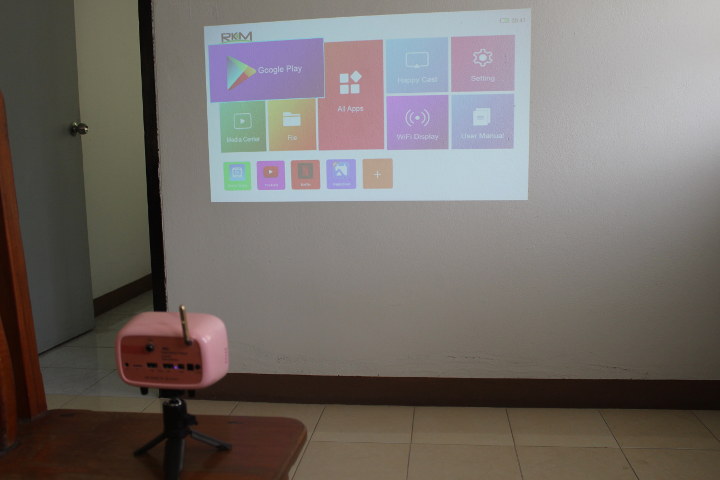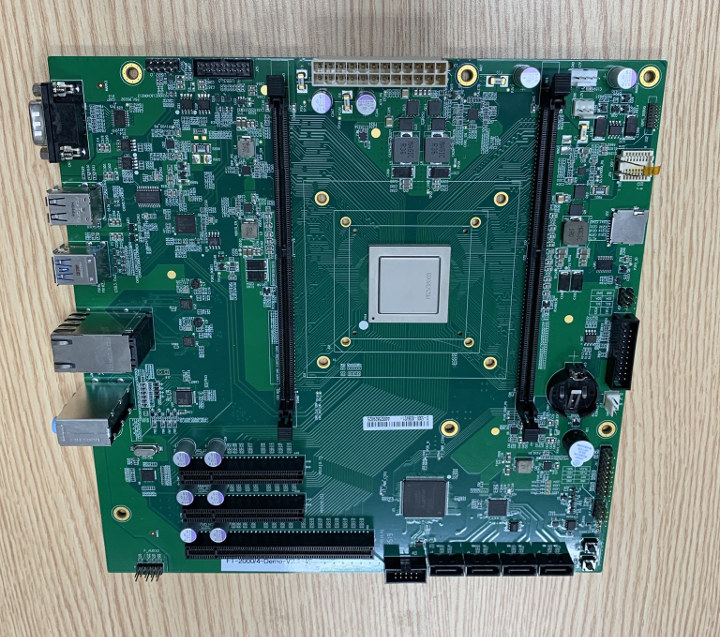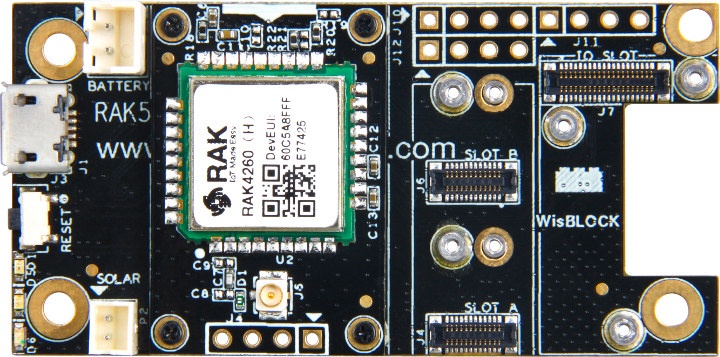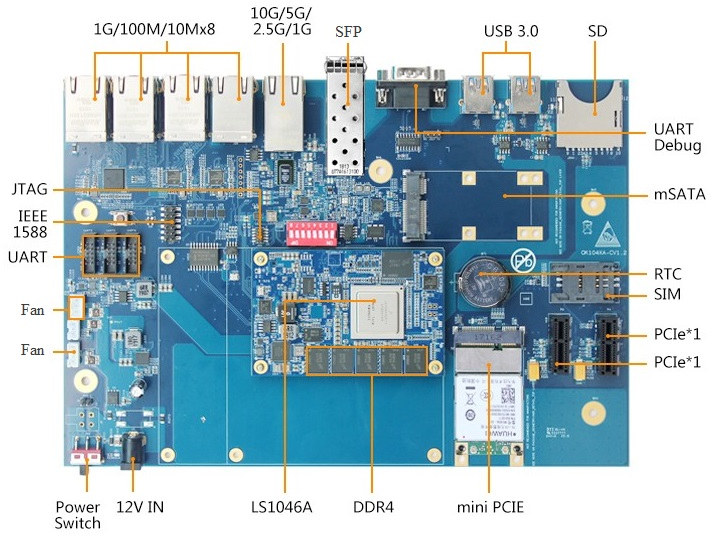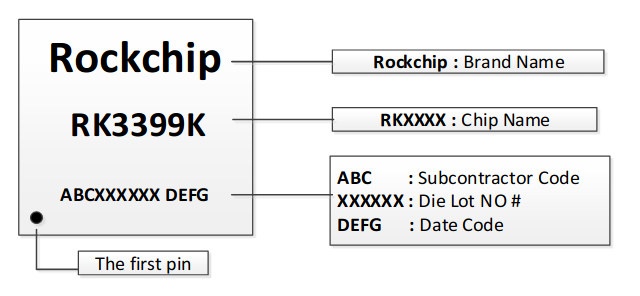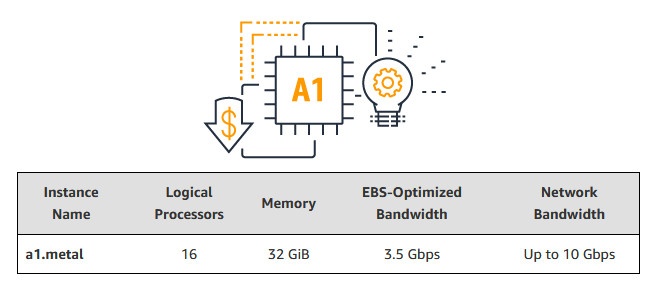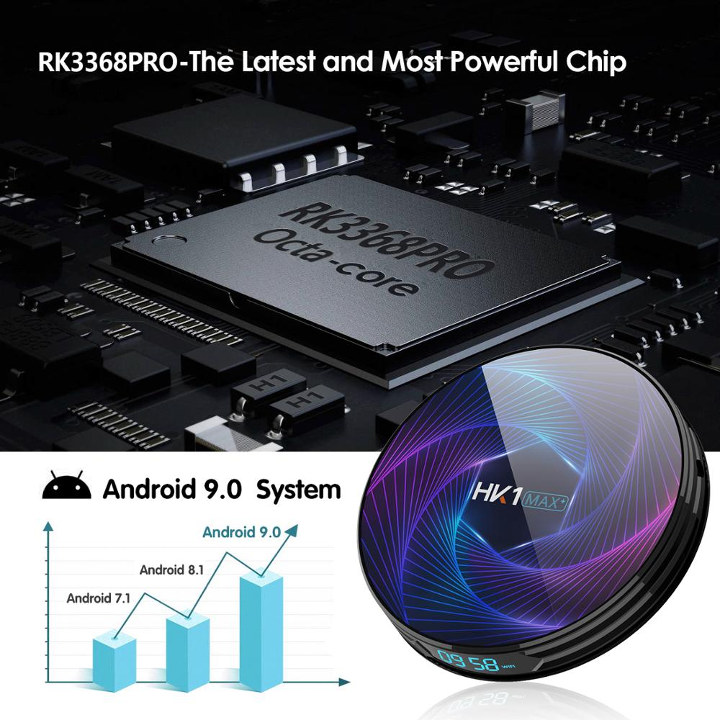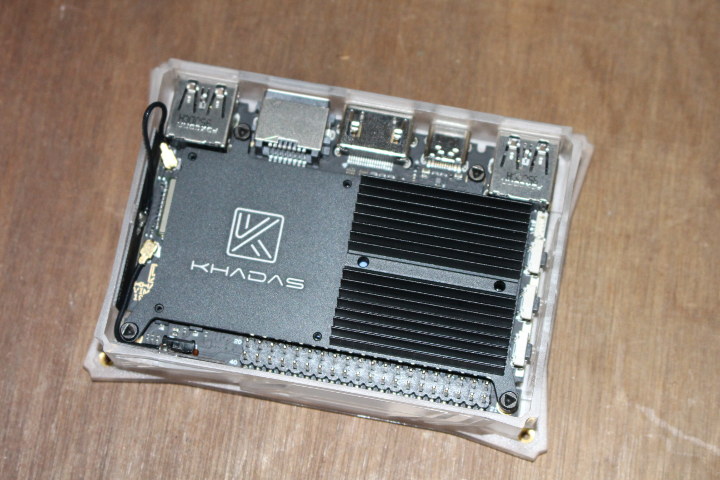Rikomagic R6 is a mini Android projector that looks like a vintage radio, or depending on your point of view a mini vintage television. We’ve already gone through the specifications last time around, but the smart projector is based on a quad-core Rockchip processor coupled with up to 2GB RAM and 16GB storage, while the 720p projector delivers up to 70 ANSI lumens. The company has now sent me a sample for review, so in this first part of the review, I’ll show what’s in the package, and what it looks like after boot, before going through more thorough testing in the second part of the review. Rikomagic R6 Unboxing The package reads “R6 MINI Projector” and “Smart Home Theater”. I received a pink model, but the company also offer other colors. The projector’s lens is protected by a black cover. The projector feels quite heavy and indeed it weights […]
This Micro-ATX Motherboard is Based on Phytium FT2000/4 Arm Desktop Processor @ 3.0 GHz
There have been attempts to bring Arm processors to desktop PC’s in recent years with projects such as 96Boards Synquacer based on SocioNext SC2A11 24-core Cortex-A53 server processor or Clearfog-ITX workstation equipped with the more powerful NXP LX2160A 16-core Arm Cortex A72 networkingprocessor @ 2.2 GHz. Those solutions were also based server and networking SoCs, but there may soon be another option specifically designed for Arm Desktop PCs as a photo of an Arm Micro-ATX motherboard just showed up on Twitter. Here are the specifications we derive from the Tweet and the photo: SoC – Phytium FT2000/4 quad core custom Armv8 (FTC663) desktop processor @ 2.6 – 3.0 GHz with 4MB L2 Cache (2MB per two cores) and 4MB L3 Cache; 16nm process; 10W power consumption; 1144-pin FCBGA package (35×35 mm) System Memory – 2x SO-DIMM slot supporting 72-bit (ECC) DDR4-3200 memory Storage – 4x SATA 3.0 connectors; MicroSD card […]
RAKWireless RAK4260 is a Tiny LoRAWAN Module based on Microchip SAMR34 LoRa SiP
Rakwireless has just announced a new module part of their LPWAN family: RAK4260 LoRaWAN module based on Microchip ATSAMR34J18B LoRa SiP and at just 15x15x1.2 mm, one of the smallest LoRaWAN modules in the market. The new module is cheaper than the company’s earlier RAK811 module and consumes less power at just 790 nA in sleep mode. The company also provides a RAK4260 evaluation board with easy access to GPIOs and serial interfaces. RAK4260 LoRaWAN Module Specifications: SiP – Microchip ATSAMR34J18 SiP with SAM L21 Arm Cortex M0+ MCU @ 48 MHz, up to 40 KB RAM, up to 256 KB Flash LoRa Connectivity Frequency Range – 862 to 1020 MHz High level of accuracy and stability (32MHz TXCO) Max Tx Power: 20dBm; Max Sensitivity: -148dBm; Rx Current: 17mA (typical) Compliant with LoRaWan 1.0.2 Expansion – Castellated holes with I2C, SPI, ADC, UART, GPIOs Power Consumption Low RX current of […]
Forlinx NXP LS1043A & LS1046A Networking SBC’s Support 10Gbps Ethernet
NXP LS1043A quad-core Cortex-A53 communication processor was introduced in 2014, while NXP LS1046A quad-core Cortex-A72 SoC was launched about 18 months later. Both are designed for networking equipment such as CPE (Customer Premise Equipment), routers, NAS, gateways, as well as single board computers and include one or two 10 GbE interfaces. Forlinx Embedded has decided to leverage those two processors in their OK1043A-C and OK1046A industrial-grade single board computers designed for networking applications. Both boards are comprised of the same baseboard and only differ by their COM-Express Mini Type 10 module which comes with the processor, memory, and flash storage. Specifications: COM Express Mini System-on-Module (one or the other) FET1046A-C NXP LS1046A SoM CPU – NXP LS1046A quad-core Cortex-A72 processor @ up to 1.8GHz System Memory – 2GB DDR4 RAM Storage – 8GB eMMC flash + 16MB QSPI NOR Flash Voltage Input – 12V Temperature Range – -40℃ to +75℃ […]
Rockchip RK3399K Processor Clocks Up to 2.0 GHz, Supports Wider Temperature Range
First unveiled in 2016, Rockchip RK3399 hexa-core processor is still widely used in development boards, Android mini PCs and Chromebooks. But today, I’ve come across another variant. Rockchip RK3399K has exactly the same features but either supports higher clock CPU clocks (Cortex-A72 @ 2.0 GHz, Cortex-A53 @ 1.6 GHz), or wider temperature range between -20°C and 85°C with lower clock speeds for the CPU (A72: 1.8 GHz, A53: 1.4 GHz) and the GPU (600 MHz) I think I’ve read stories about Rockchip RK3399 being clocked at 2.0 GHz with proper cooling, but it may not be reliable on all boards. RK3399K should fix that. Rockchip actually updated its datasheet on the 29th of May, but I only found out about it today. Everything else looks the same, and you’ll be able to find out whether your device uses RK3399 or RK3399K by looking at the marking on the chip. That’s […]
Amazon Unveils EC2 A1 Arm Bare Metal Instances
A1 ARM Instances Amazon had first released its 64-bit ARM EC2 A1 Instances back in 2018, which are part of AWS Elastic Compute Cloud (EC2), an ever-evolving virtual platform that supports business subscribers utilizing applications in the cloud. Arm Bare Metal Instances The most recent launch is the EC2 A1 ARM Bare Metal Instances, which Amazon is reporting is similar to the previous version of A1 ARM Instances, but with greater reach within the ARM ecosystem. The Servers The new EC2 A1 Arm instances are powered by the AWS Graviton Processors, featuring the 64-bit Arm Neoverse with custom silicon developed by AWS. Features Include Amazon Machine Images (AMI) Elastic Block Store (EBS) Auto Scaling Applications can have more direct access to the processor and memory resources within the underlying server. Some of the different types of scale-out applications the new Instances support and will enhance are – Application Types Web […]
HK1 MAX PLUS TV Box Features Upgraded Rockchip RK3368PRO SoC with USB 3.0, HDR Support
Rockchip RK3368 octa-core Cortex-A53 processor @ 1.2 GHz was introduced in 2015 mostly in TV boxes running Android 5.1 such as Beelink i68 or Tronsmart Orion R68. Unsurprisingly we don’t read much about new Rockchip RK3368 products four years later. But Rockchip appears to have launched a RK3368 “refresh” with RK3368PRO processor equipped with most of the same features, plus the addition of a USB 3.0 interface, and HDR support. The company also updated software support to Android 9.0 Pie. We don’t actually have much information about the processor as we learned about it via a listing on Aliexpress for HK1 MAX PLUS TV box with the following (preliminary) specifications: SoC – Rockchip RK3368PRO Octa-Core Arm Cortex-A53 @ 1.5 GHz with Imagination PowerVR G6110 GPU System Memory – 4 GB DDR3 Storage – 32GB, 64GB, or 128GB flash; MicroSD card slot Video Output – HDMI 2.0a up to 4K @ […]
Khadas VIM3L (Amlogic S905D3) Benchmarks, Settings & System Info
Khadas VIM3L is the first Amlogic S905D3 SBC on the market and is sold as a lower-cost alternative to the company’s VIM3 board with a focus on the HTPC / media player market. Shenzhen Wesion was kind enough to send me a sample for review, and I’ll start by checking out benchmarks and system information in Android 9.0 Pie operating system. I also plan to perform a more detailed review with Android 9.0 and CoreELEC with a focus on media playback. I received the bare board only, and the first thing I did was to install it the heatsink I received for VIM3 and in turn, install it in the acrylic case. The company told me the heatsink is not really necessary “for normal purpose using like watch TV”, but it should be installed for performance tests and heavy workloads. I’d still recommend purchasing the heatsink to make sure it […]


